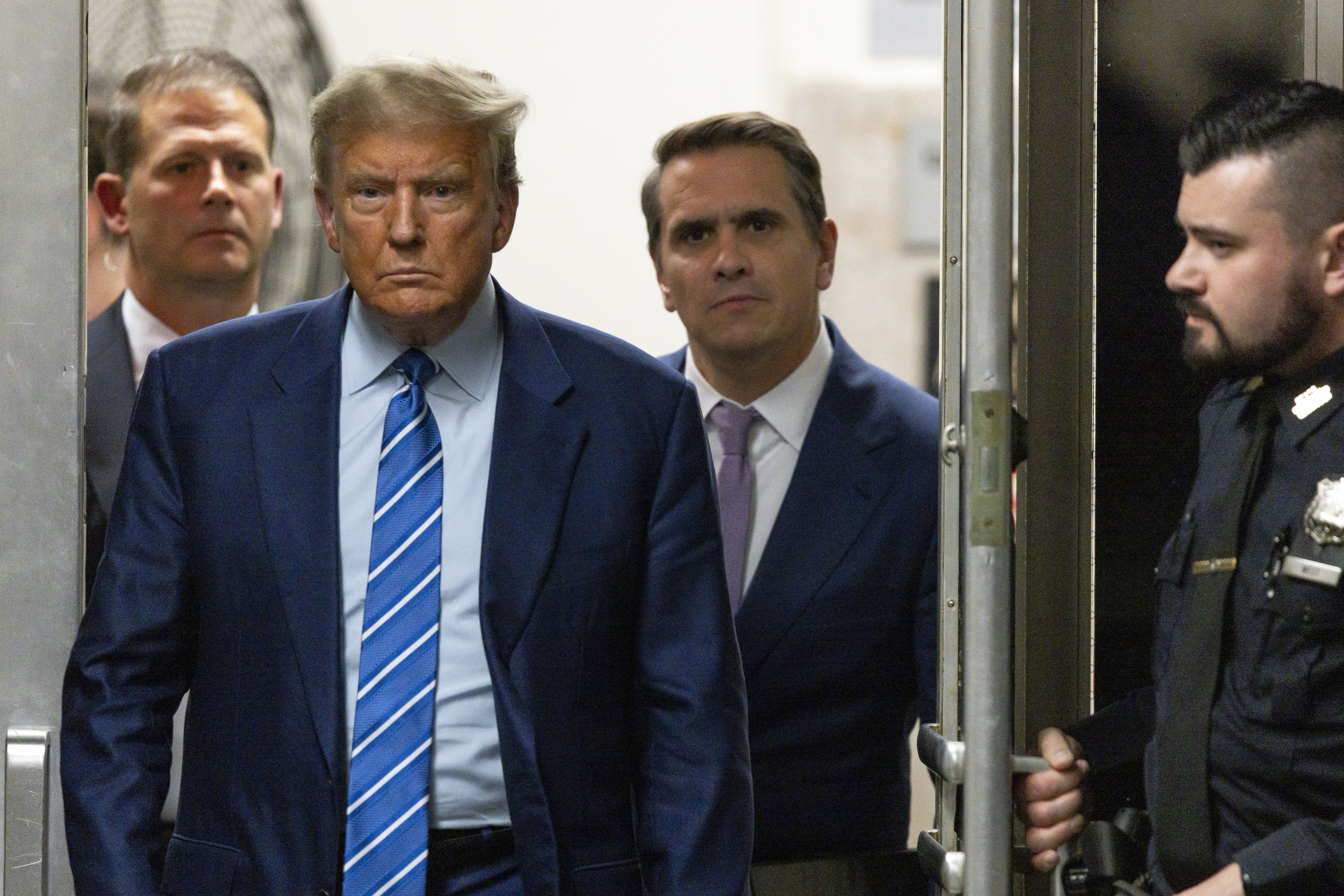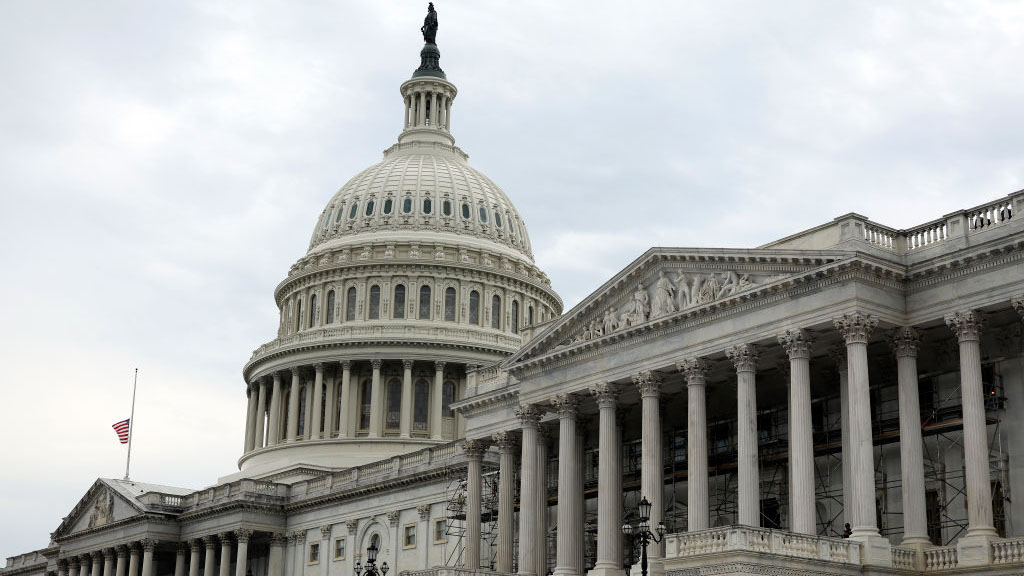WASHINGTON - On the campaign trail, Sens. Barack Obama and John McCain frequently laud bipartisan cooperation and unconventional problem solving skills.
But back in Washington, 16 mostly obscure senators are actually doing it.
Without fanfare or fanaticism, this mixed-party group says it's laying the groundwork for the next president to pass universal health care legislation.
The idea was conceived and introduced by Sen. Ron Wyden, D-Ore., in 2006. Sen. Robert Bennett, R-Utah, came onboard shortly thereafter. And the two of them have been courting recruits ever since.
"Sen. Obama and Sen. McCain compete almost daily about who can be the most bipartisan," said Wyden.
"We're giving them a real shot," added Bennett. "Regardless of who is president from this campaign, he has done his dead-level best to raise expectations for immediate action."
Not the norm
The level bipartisanship Wyden and Bennett have created in the Senate is rarely seen in Washington. And the manner in which they've taken on health care reform, in many ways, represents the antithesis of congressional business-as-usual.
U.S. & World
While the bill's co-sponsors admit that the legislation isn't perfect, their formal endorsements signal a willingness to step off a political precipice in search of public support.
"My co-sponsorship of the Wyden-Bennett bill is not an endorsement of all that it proposes," said Sen. Chuck Grassley, R-Iowa. "Instead, I am co-sponsoring this bill to add my voice to those who are calling for people to work across party lines to find to innovative solutions that can work."
Giving something to get something
This isn’t Bennett’s first foray into health care reform.
In 1993, he helped lead the charge against the Clinton administration's comprehensive reform bill. That plan included a requirement for employers to insure all of their workers.
"Whenever anything came up on the floor on the employer mandate, I had about six shock troops working with me...and we were ready to pounce," said Bennett.
"The Republicans have always resisted universal coverage, because they've always seen it, accurately, as code word for 'single-payer, government run system.'"
Now, Bennett is the primary Republican sponsor of a bill that includes the very mandate he resisted: insurance for all Americans.
In exchange, Bennett and the GOP get what Democrats have fought against for years: a larger role for private insurance companies.
The Healthy Americans Act (HAA) would empower private companies to act as the sole providers of health insurance in the United States.
While Medicare would still exist for seniors, the government-run programs that insure children (SCHIP) and the poor (Medicaid) would be eliminated.
Wyden said that unlike the unbending attitudes in 1990's, a "philosophical truce" has started to fall over the Capitol.
"Democrats have been willing to move in terms of saying, 'All right. We won’t turn this all over to the government and make it government run. We'll have a strong role for the private sector."
Authentic bipartisanship
The concept of bipartisanship is loosely defined in Capitol Hill parlance.
When it comes to controversial legislation, it is not uncommon to hear the word “bipartisan” tossed around for a bill with 40 Republican and three Democratic co-sponsors (or vice versa).
But Wyden and Bennett couldn't be more true to the word: eight Democrats and eight Republicans.
Even when they announced new co-sponsors, they came in pairs.
"It became the Noah's Ark bill," said Bennett, "you go on two-by-two with one Republican and one Democrat."
Most of the new recruits were not the usual suspects who often crossed party lines. Many aren’t facing tough re-election campaigns. And typically, they’re not Democrats representing "red states" or Republicans representing "blue states."
The members include solid Republican and reliable Democrats. There are members involved in GOP leadership and several who sit on the powerful Senate Finance Committee, which shares jurisdiction over HAA with the Health, Education, Labor, and Pensions Committee.
There hasn't been much public opposition to the overall bill. But there has been pointed criticism of some of the bill's key components.
Because the bill requires almost everyone to buy their health insurance through government-regulated private companies, it effectively ends the practice of people getting their insurance through their employers. That means 130 million Americans would be forced to find new coverage.
This was one of the key reasons why the Clinton Administration’s plan failed, according to health care observers. While people acknowledged that the system was broken, they still wanted the option to keep what they had.
Public opinion
A recent poll conducted by the independent Kaiser Family Foundation suggests that the public still feels this way.
Overall, 17 percent of respondents said they would prefer to buy their own insurance, while 39 percent would rather get it from an employer. And a majority of employer-insured voters believes it would be harder to buy their own plans in the individual marketplace.
"There are strong policy reasons for building upon the employer-based system," said the American Federation of State, County and Municipal Employees in a letter to congressional leaders.
"It provides a ready-made pooling mechanism, has lower administrative costs than individual coverage, and carries out complex negotiations with insurers that the average family is not equipped to manage."
Another sign of the bill's failings, the lobbyists say, is the absence of two key Democratic senators as signatories on the legislation.
Sen. Ted Kennedy, D-Mass., has lent encouragement to Wyden's efforts, but not an endorsement. And while Sen. Hillary Clinton, D-N.Y., said that the HAA "proves that Democrats and Republicans can come together" for health care reform, she has also withheld her official support.
And across the aisle, Republicans and their supporters claim that the new reforms would be paid for by taxing businesses and the wealthy.
Sen. Bill Nelson, D-Fla., said it’s not usual to see opposition from both sides when sweeping reforms are proposed.
"Once we actually get [the bill] to where we'll start considering it, strap on your seat beat, and get your shoulder harness on too,” said Nelson.
Starting point
Sens. Wyden and Bennett have no illusions about the difficulty in this mission. "Nobody can underestimate how hard this is," said Wyden.
Bennett said that their bill is "a starting point" for the new president to launch his assault on comprehensive health care reform. He says everything in the bill is negotiable. But playing party politics, he believes, will doom health care reform.
"Whether it's Obama bringing 'change' or McCain bringing 'reform,' if they run into health care and offer an ideologically pure solution that appeals only to base of the party, you're going to see the Clinton thing repeated," said Bennett.
Wyden said he'll put his team's efforts in high gear shortly after Election Day. And after the new president has had a few nights in the White House, Wyden said, he will make the call.
"This thing isn't written in concrete," Wyden said he'll tell the president-elect. "We think we've got a good start here. We think we've got something to work with."



